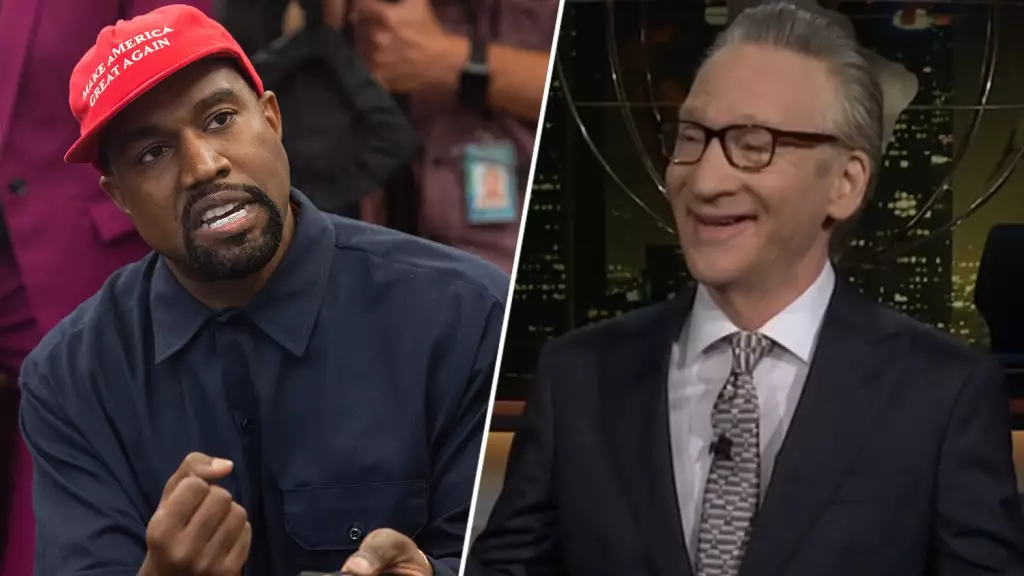Kanye West, a polarizing figure in the public spotlight, has once again ignited controversy with his recent antisemitic remarks. His reemergence has not gone unnoticed, and various media personalities have responded vigorously to his outlandish statements. Bill Maher, a comedian known for his sharp critiques, used his platform on “Real Time” to address West’s remarks, which included an alarming declaration of admiration for Adolf Hitler. This incident underscores a broader societal issue regarding the responsibilities of public figures in disseminating rhetoric that can influence millions.
The Implications of West’s Words
Maher’s commentary reflects a growing concern about how celebrities, particularly those with significant followings such as West—whose artistic contributions include 24 Grammy Awards—can impact public sentiment. By espousing dangerous ideologies, West’s statements resonate beyond mere shock value; they have the potential to incite hate. Maher pointedly remarked on the absurdity of West’s claims, suggesting that such outbursts beg the question of whether they are performative trolling or indicative of deeper ambitions for political relevance.
Furthermore, West’s call for the pardon of Sean “Diddy” Combs, amid serious allegations against Combs, illustrates how interconnected his actions are with the larger social and legal narratives surrounding celebrity culture. West’s open support for Combs raises moral questions about loyalty and prioritizing personal relationships over ethical standards.
The reaction from civic organizations, particularly the American Jewish Committee (AJC), has been one of unequivocal condemnation. Their denunciation of West’s remarks highlights the grave risks posed by someone who uses their platform to propagate hate. In an era where antisemitism is resurging globally, West’s influence poses a tangible threat, prompting the AJC to emphasize the importance of accountability among celebrities. They argue that unchecked hate can proliferate, particularly on platforms like social media, which serve as breeding grounds for extremist ideologies.
While some may view West’s actions through the lens of entertainment, it is essential to consider the broader societal implications of his verbalized beliefs. His past apology to the Jewish community following an earlier antisemitic incident signals a deep disconnect. His commitment to understanding and sensitivity seems overshadowed by a recent, reckless fling with dangerous rhetoric.
This troubling episode involving Kanye West serves as a critical reminder of the potency and responsibility that come with fame. Public figures must be cognizant of how their words can lead to real-world consequences. At a time when the Jewish community is experiencing rising antisemitism, it is vital that those within the entertainment industry confront hateful rhetoric head-on.
The media, fans, and industry insiders all play a role in fostering an environment that questions such behavior. By holding figures like West accountable, society can work towards combating hate and promoting understanding. The conversation must continue—condemnation should not simply be acceptable; it should be imperative. Public discourse surrounding such incidents will be crucial in ensuring a more tolerant and educated society in the future.
